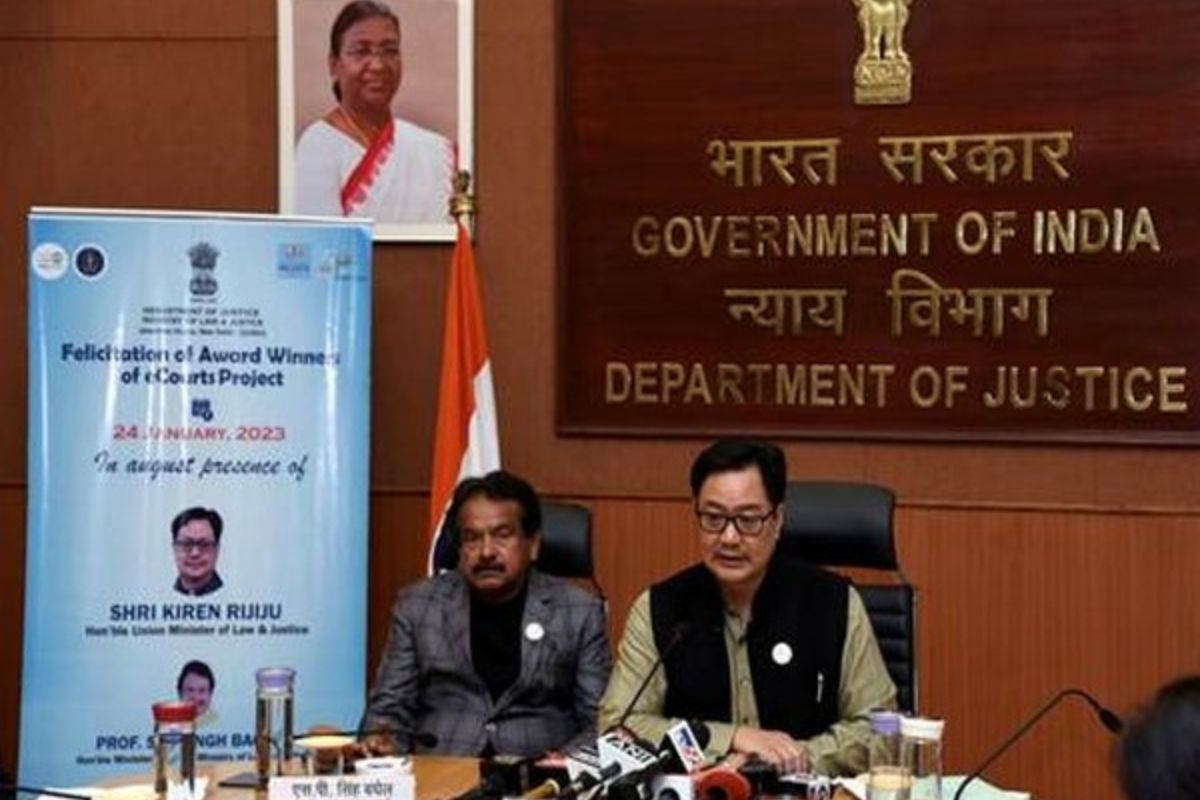

The New Delhi International Arbitration Centre has been renamed the India International Arbitration Centre by an Act that has now become law. The new law, titled the ‘New Delhi International Arbitration Centre (Amendment) Act, 2022,’ went into effect after the Ministry of Law and Justice announced it in a notification published late on January 27 night.
“In exercise of the powers conferred by sub-section (2) of section 1 of the New Delhi International Arbitration Centre (Amendment) Act, 2022 (23 of 2022), the Central Government hereby appoints the 27th day of January 2023 as the date on which the said Act shall come into force,” reads the notification.
The move comes over a month and a half after the New Delhi International Arbitration Centre (Amendment) Bill, 2022 was enacted by Parliament during the Winter Session in December of last year. The Lok Sabha passed the Bill on August 8, 2022, and the Rajya Sabha passed it on December 14, 2022.
The Act, once enacted, altered the New Delhi International Arbitration Centre Act, 2019.
The Act also establishes the New Delhi International Arbitration Centre and recognises it as a national institute. The International Centre for Alternative Dispute Resolution was succeeded by the New Delhi International Arbitration Centre.
It modifies Section 15(a) of the main Act and makes it easier to undertake international and domestic arbitration and other types of alternative dispute resolution mechanisms in the manner indicated by the regulations.
The New Delhi International Arbitration Centre is renamed the India International Arbitration Centre under the Act. In addition, the Act corrects various drafting flaws in the Arbitration Centre Act of 2019. The Act requires the Arbitration Centre to make every effort to enable international and domestic arbitration and conciliation.
The Act now includes the practise of different types of alternative conflict resolution. The central government will issue regulations governing the conduct of arbitration and other types of alternative dispute settlement.
The Act authorises the central government to arrange for the removal of any obstacles in implementing the Act for a period of two years from the date of its enactment. The Act increases this timeframe to five years.
In December, the Law Minister told Parliament that the institution would have a pre-determined arbitration procedure, which would be established by the Arbitration Centre itself, and that there would be no government participation in the institution.
He further stated that the institution will have an efficient panel of arbitrators, expert support, and world-class well-built infrastructure, which will make conducting business in India easier.
Delhi Capitals (DC) and Lucknow Super Giants (LSG) are set to clash in Match 4…
While the official plot remains under wraps, Jaat promises to be a high-energy action film,…
The US government has said Mahmoud Khalil did not disclose that he worked for UNRWA…
Dubbed by some as a “door to hell,” the black hole exerts an extreme influence…
Their honeymoon was a grand affair, an extravagant stay at the exclusive Turtle Island Resort…
Delhi Capitals (DC) take on Lucknow Super Giants (LSG) in their IPL 2025 opener, with…